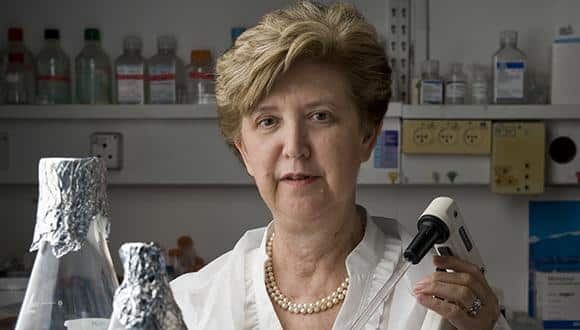Researchers from Tel Aviv University have developed a product that protects the bone tissue and it will be registered as a new patent * The product is designed to prevent bone loss around orthopedic implants, dental implants and teeth

Dental and orthopedic implants are most widely used in the world. One of the main reasons for implant failure is an immune response against bacteria in the mouth and the addition of titanium particles from which the implant is composed. These and many other factors trigger an inflammatory response leading to the activation of bone absorbing cells (osteoclasts) and the destruction of the bone (osteolysis) around the implants. Once the process starts, it is almost impossible to control it and it causes, in the end, the loss of the implant. A similar process happens around teeth where bacteria are the main cause and bone resorption is activated by the immune response and inflammatory cells.
Researchers from Tel Aviv University have developed a molecule (SNV) based on vasoactive intestinal peptide (VIP), which is actually a short, stable protein, which may significantly inhibit both inflammation and bone destruction. The technology will help people with orthopedic implants, for example people who have had knee implants, people with dental implants who have had dental implants and people who suffer from receding gums (which is actually bone receding) and mobile teeth due to gum disease. VIP acts as a neurohormone and neurotransmitter (neurotransmitter) associated with many physiological actions such as vasodilation, airway dilation, cell division and neuroprotection. The researchers made the protein fatty in order to be able to insert it through the skin so that it could be used as a medicine in the form of a paste.
The research of Prof. Yankel Gevet, Prof. David Kochavi, Prof. Ilana Gozes, Dr. David Dangor and Dr. Michal Agar from the Sackler Faculty of Medicine at Tel Aviv University will be presented for the first time In the article which will soon be published in the journal Frontiers in Pharmacology, and includes both preparatory work for a clinical trial and in-depth results of SNV penetration through the skin. The treatment will be registered as a new patent.
"Recently I met with friends and relatives who underwent knee implants and dental implants and I understand the great need of the patients for this type of medicine and hope we can help" Professor Ilana Gozes tells. "I worked for many years on VIP - the important protein hormone that maintains the vitality of brain cells on the one hand and is important for sexual activity on the other hand. We were the first in the world to isolate the VIP gene, in an era when gene cloning was in its infancy, and also the first to develop futuristic drugs by connecting the VIP protein to a fatty residue to create SNV - a molecule that can penetrate through the skin and be used as a medicine in an ointment. At that time, with the help of the molecule, we tried to solve problems of impotence and Alzheimer's, in collaboration with Prof. Mati Friedkin at the Weizmann Institute. Recently, we took a completely different research direction, within the framework of which we discovered that SNV effectively protects bones against inflammatory processes that trigger bone resorption."
During the first experiments, the effect of the molecule on bone cells and cells from the immune system was tested. At this stage it was already discovered that metal particles originating from implants cause accelerated bone resorption. When testing the molecule in an animal model, the researchers were amazed to discover that in the presence of SNV, the bone resorption process was significantly inhibited. As a result, the process may restrain or prevent bone resorption and thus maintain the grip of the implants and teeth on the surrounding bone. "These results were achieved, among other things, thanks to the connection between clinicians and researchers that made it possible to provide a research response to a clinical gap" Dr. Michal Agar explains, From the Morris and Gabriela Goldschlager School of Dentistry
Prof. Yankel Gavet summarizes: "The project is a classic example of collaboration between different departments in the Faculty of Medicine at Tel Aviv University. On the one hand, in collaboration with Prof. David Kochavi, my group has been researching for years the connection between the immune system, inflammatory response and bone cells. On the other hand, Dr. Michal Agar is a dentist who decided to investigate these processes as part of her doctoral thesis. She participated in Prof. Guzes' course which included VIP and SNV and after an in-depth conversation the idea was born to test if these molecules can prevent bone loss around implants or teeth. We very quickly discovered the tremendous potential of SNV for people who suffer from bone loss around teeth and implants, and we are working to bring this invention to the clinic soon."
- New findings present a more accurate picture of electron flow in quantum states
- Scientists have been able to identify the genes that influence a healthier aging process
- On smell, aggression and motherhood
- An omission in the Ministry of Health: from 2014 the fight against smoking was effectively stopped, and from 2015 the number of smokers increased, especially the young
- A sensitive acidity sensor that initiates insulin production

2 תגובות
Is there any research into the horse tail damage to the nervous system in the lower back? Are there any solutions
There are transplant pains.